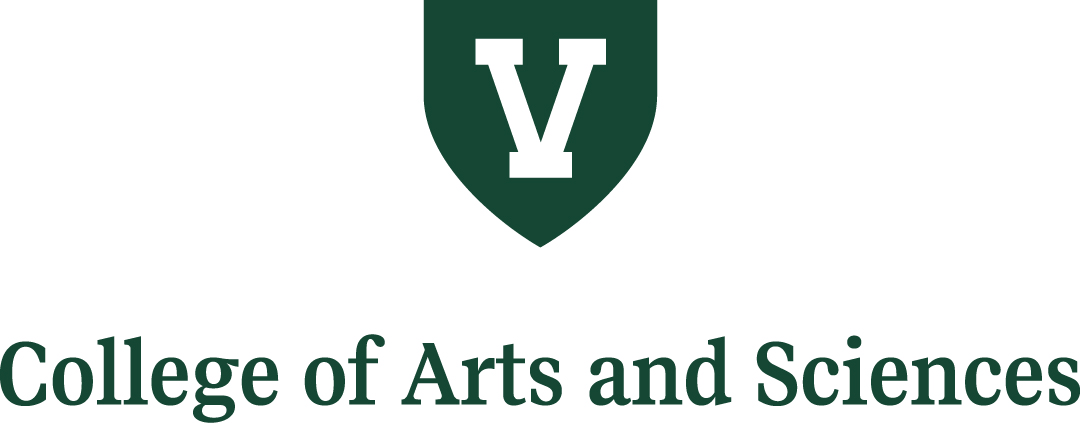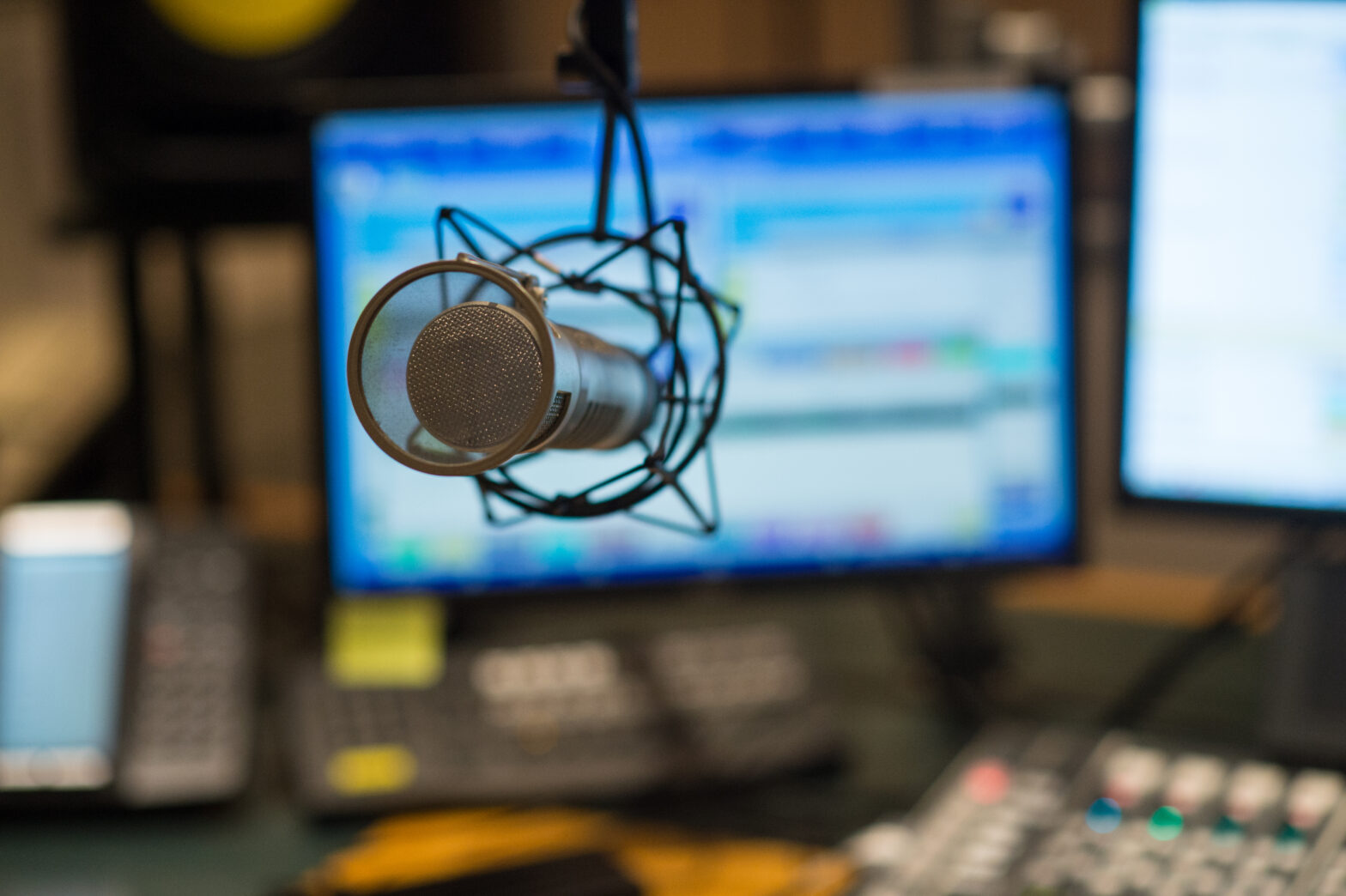The University of Vermont College of Arts and Sciences has partnered with Vermont Public to create a multi-level engagement program that allows UVM students to work alongside Vermont Public staff while earning academic credit.
Audio storytelling, radio journalism and podcasting classes and internships for UVM students
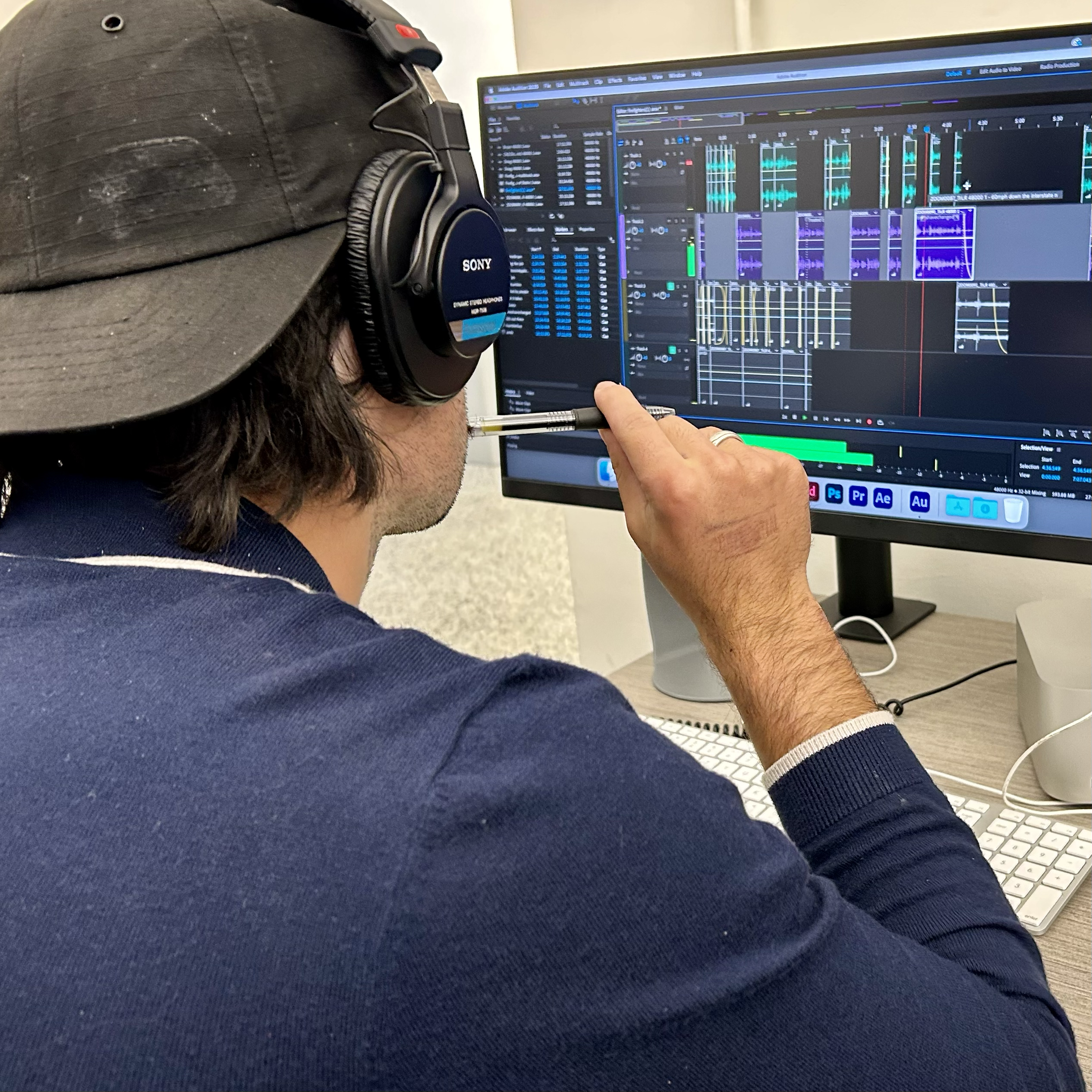
FTS 2605 A: Creative Audio Shorts
Spring 2026
T/TH 11:40-12:55 PM
Cohen Hall 209/211
Produce a series of short creative audio stories and explore the art of telling stories in sound.
(CRN 15585)
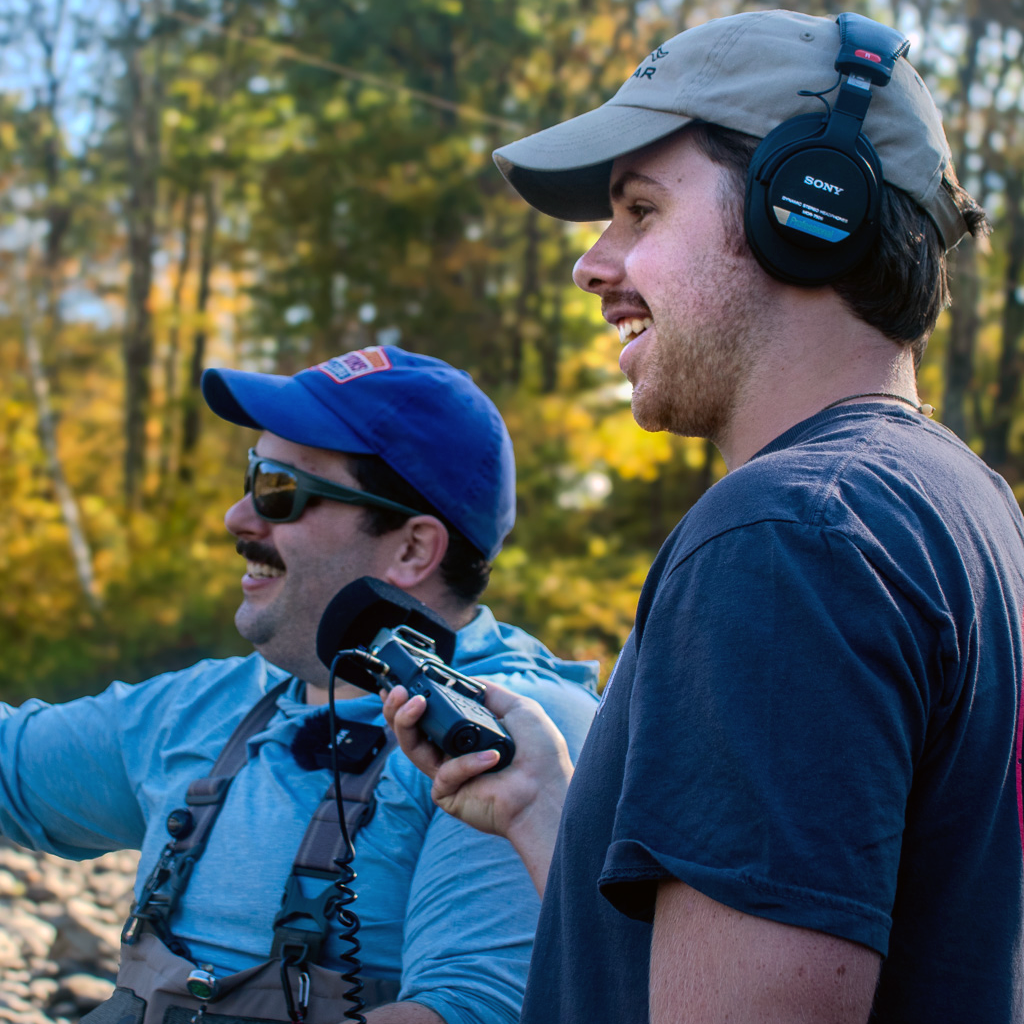
CAS 3922 C: Public Radio Journalism
Spring 2026
T/TH 4:25-5:40 PM
Cohen Hall 209/211
Report and produce NPR-style radio news stories for the Community News Service.
(CRN 14374)
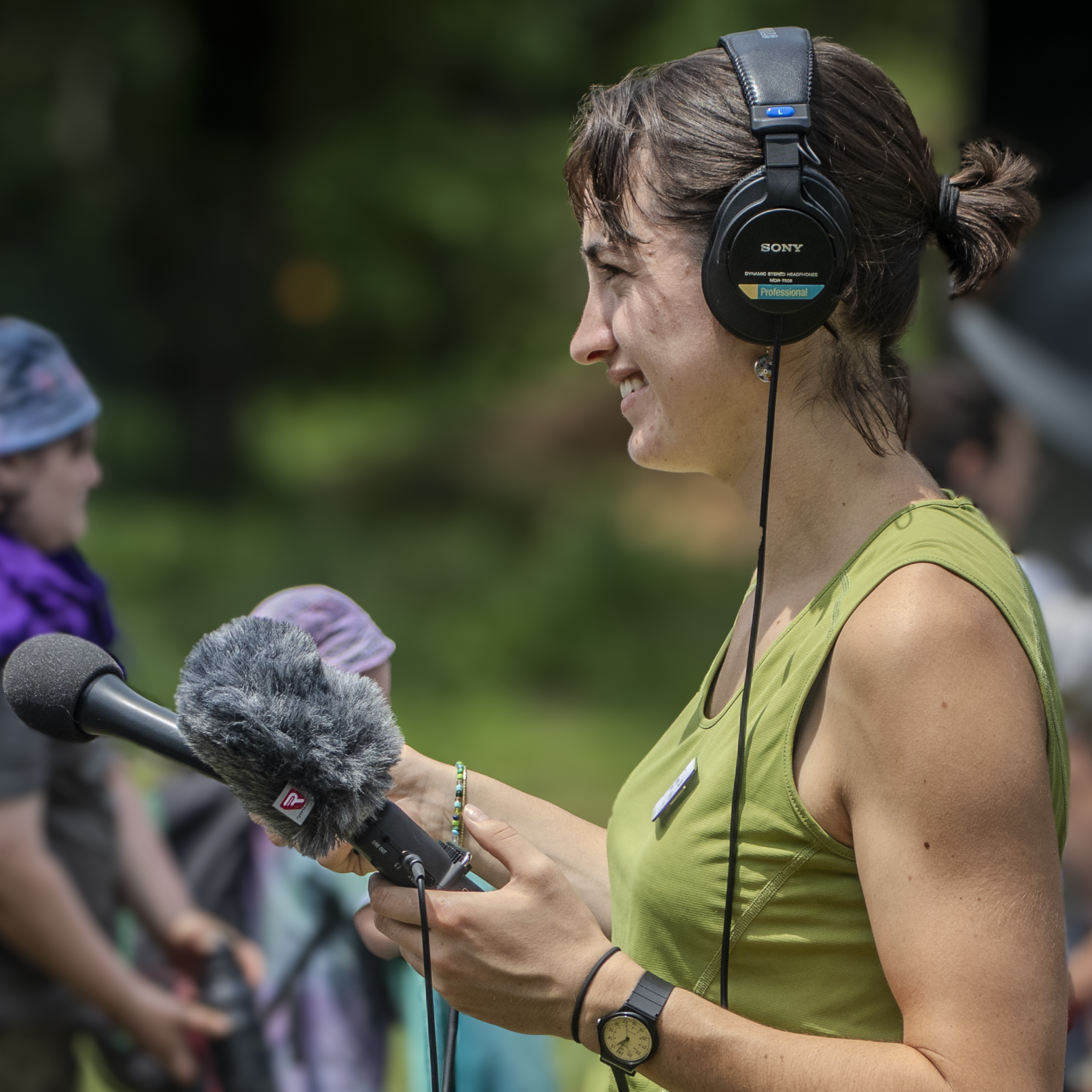
CAS 2991 B: Advanced Internship with Vermont Public
Apply now for Spring 2026
Join Vermont Public as a paid intern! Interns can apply to work on one of several teams, including the newsroom, podcasts, marketing and events, music and more!
Open to two students by application.
Frequently asked questions
What will I actually do in these courses?
In all three courses you’ll learn the skill of telling compelling stories using sound.
(You can take all three courses, but if you do, we suggest taking them in different semesters.)
In all courses you will:
- Record interviews and active tape using professional audio recording equipment (Zoom H5, Electro-Voice RE50B and more)
- Mix stories using professional audio editing software (Adobe Audition)
- Identify story ideas
- Conduct compelling interviews
- Discuss, follow and question journalistic and documentary storytelling ethics
- Write, edit, and fact-check scripts
- Think creatively about sound
- Work effectively with an editor
- Produce several audio stories from start to finish
Tell me more about FTS 2605: Creative Audio Shorts
Discover the art and practice of short-form audio storytelling.
This course is housed in the UVM Film and Television Studies and Reporting and Documentary Storytelling programs.
What makes this course great: You get to experiment with creative audio storytelling. In this course, we will explore the art of short-form audio through creative exercises, careful listening, discussions, and play. Love podcasts? Want to experiment with sound as a medium? Want to play and be pushed creatively? This is the course for you!
What you’ll make:
- Several 3-minute creative audio stories, similar to what you might hear on Third Coast Short Docs or Audio Flux.
Prerequisites and restrictions: FTS and RDS majors/minors only for the first week of registration. Prerequisites enforced by the system: FTS 1400, or FTS 1420, or FTS 1430. All prerequisites and restrictions can be overridden with instructor permission. Email Kelsey at kkupfere@uvm.edu with a note about why you’d like to take this course.
(CRN 15585)
Tell me more about CAS 3922 C: Radio Journalism
Produce radio news stories like the kind you hear on NPR.
This course is housed within the College of Arts and Sciences internship program and the Center for Community News. Students in this class are interns with the Community News Service (CNS).
What makes this course great: You’ll produce your final project — an audio news feature story — with the goal of it broadcasting on Vermont Public, our local NPR news radio station, reaching thousands of listeners across the region.
What you’ll make:
- A one-minute vox pop
- A two-minute audio postcard (Examples: The Red Hot Chilly Dippers; Fall harvest in Vermont)
- A four-minute audio feature story (Examples: This Colchester mobile home park rallied to become a village; Vermont allows people who are incarcerated to vote. Data shows they don’t)
Prerequisites and restrictions: This course requires at least sophomore standing to register. There are no other prerequisites. Having previous experience with journalism and audio/video production classes is helpful, but it’s not required.
(CRN 14374)
Tell me more about CAS 2991 B: Vermont Public Advanced Internship
This is a PAID production internship with Vermont Public, our local NPR news radio station.
What makes this internship great: Interns support the production of daily news and podcasts at Vermont Public. They are embedded with a team at Vermont Public — like the Vermont Public newsroom, marketing and events team, Brave Little State podcast, and Vermont Edition daily show — as producers.
Their work includes pitching story ideas, field reporting, producing spot and feature stories, producing podcast and daily show segments, booking interviews, logging and cutting tape, researching and fact checking, writing and publishing web pieces, producing social media content, producing events, doing marketing research, and more.
This is a true internship (not a class) even though you get class credit. You’ll work 15-20 hours a week at the radio station as a member of their team. We’re looking for people who are curious, self-motivated, excited to be part of a professional team, able to complete tasks and meet deadlines, and ready for the responsibility of producing news stories and podcasts for an award-winning newsroom.
For more information, see the Vermont Public UVM Production Intern job description.
Prerequisites and restrictions: Any currently enrolled UVM undergraduate studying journalism, media, communication or with an interest in public media journalism are eligible. Previous experience with journalistic reporting and audio production strongly preferred. Must be authorized to work in the United States. This internship is not open to recent graduates.
Compensation: Interns earn $17 per hour.
Internship dates: The internships run during UVM’s fall, spring and summer semesters. Each internship term is one semester long. There will be two interns hired each semester, for a total of six interns a year.
Application due date: Spring 2026 applications are due November 2, 2025. Summer 2026 applications will open in mid-March 2026 and are due April 1, 2026.
What is Vermont Public?
Vermont Public is home to Vermont’s public radio (NPR) and public television (PBS) stations. Vermont Public’s award-winning newsroom produces local news and educational programming, serving Vermont with trusted, relevant and essential information.
Vermont Public’s local and national programs are broadly available for free on statewide radio and television broadcast networks, digital platforms, social media and in communities throughout the region.
Vermont Public was created in 2021 when Vermont Public Radio and Vermont PBS merged into a unified public media organization.
Vermont Public is an independent, locally owned and operated community licensee, which means that their license is owned by the community, not a governmental agency. Vermont Public’s primary source of funding — more than half — comes from more than 40,000 members making donations in all amounts.
Do I need any previous experience to take these courses?
No!
Both audio storytelling courses require no previous journalism or audio experience to be successful. In fact, we love students who are brand new to the audio game. We’ll teach you everything you need to know.
We’re looking for students who are curious, engaged in their communities, love to write, love to meet new people, and are excited about telling true stories using sound.
If you do have previous audio and journalism experience, these courses will support you as you continue to experiment and grow your skills.
The FTS 2605: Audio Storytelling course has some course prerequisites, and CAS 3922 C: Radio Journalism requires sophomore standing. All prerequisites and restrictions can be overridden with instructor permission. Email Kelsey at kkupfere@uvm.edu with a note about why you’d like to take this course.
The paid internship does require previous experience.
Are these courses part of the Center for Community News?
Yes! These courses are a collaboration between The University of Vermont’s College of Arts and Science, the University of Vermont’s Reporting & Documentary Storytelling program, Vermont Public, and the Center for Community News.
The Center for Community News is a University of Vermont journalism internship that supports partnerships between local newsrooms and college students across the country.
Stories from the CAS 3922 C: Radio Journalism class will be published with the Community News Service (CNS), which is the local newswire powered by UVM students and the Center for Community News. Students in the Audio Storytelling class have the option for publishing stories with CNS.
I am Deaf or hard of hearing, and/or I have some accessibility needs. Can I be successful in these courses?
Yes! There are many radio producers who are Deaf and/or hard of hearing, including NPR’s Mary Louise Kelly.
There are exciting innovations in the ASL and radio space, including Connecticut Public’s show Radio for the Deaf, subtitled multilingual audio projects from Radio Atlas, and this student-produced radio story about Deaf theater that’s captioned in English and ASL.
It’s critically important that our newsrooms reflect our community. In this class, we use several guides, including Disability Matters: A tool kit for newsrooms to better serve the disability community to build and maintain an equitable learning environment.
Got questions and ideas? Email instructor Kelsey at kkupfere@uvm.edu to talk about what’s possible.
I can’t take these courses. Are there other ways I can get involved?
Probably! Email Kelsey at kkupfere@uvm.edu to set up a time to chat.
Testimonials
“I am learning so so much in this class. Honestly, it’s my favorite class I’ve taken in college so far.”
—Public Radio Journalism student, spring 2025
“Interning with Vermont Public’s newsroom has been an incredible opportunity to engage with Vermont’s people and places. I’ve learned a lot about what kinds of stories matter to people, and how I can thoughtfully move through the journalism process, from interviewing to editing. I love how curiosity and care are prioritized in this workspace. Here, I am encouraged to push myself and grow as a student, a journalist, and a person.”
—Myla van Lynde, Vermont Public newsroom intern fall 2025
“This has been my favorite class I’ve taken since coming to college. It is definitely challenging, but it’s AWESOME. I love getting to use the audio equipment and learn the editing software. I feel like we’re learning skills that will be helpful outside of this class, which I think is important.”
—Public Radio Journalism student, spring 2025
“Public Radio Journalism expanded my skills in audio editing, writing, publishing, and interviewing — all real-world, transferrable skills! Everything was well-paced and well-taught. Kelsey is an amazing professor. She presented an abundance of materials and resources to help us do our work and make sure we were prepared, and she went out of her way to help me succeed. She made me love radio journalism.”
—Public Radio Journalism student, fall 2025
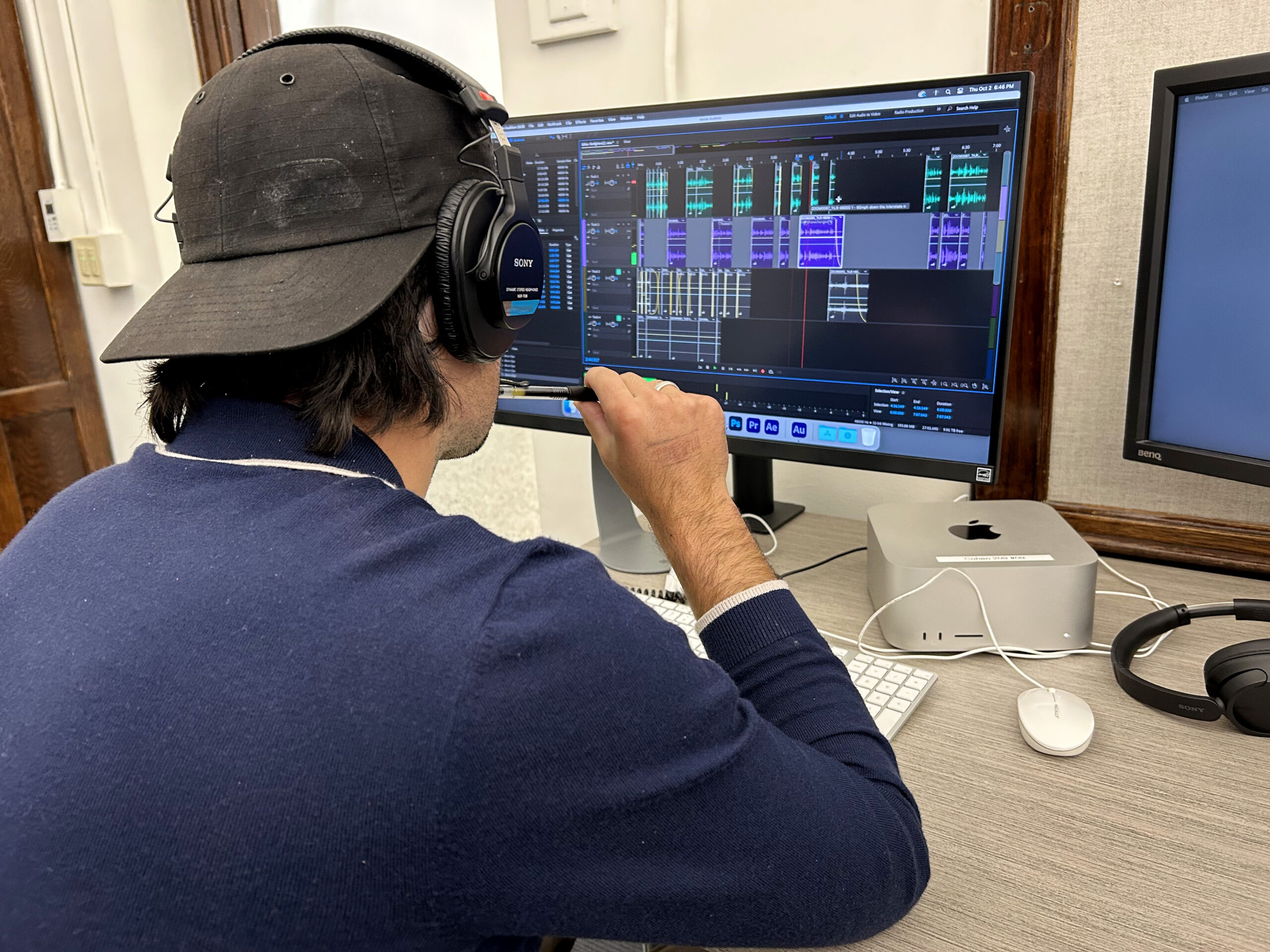
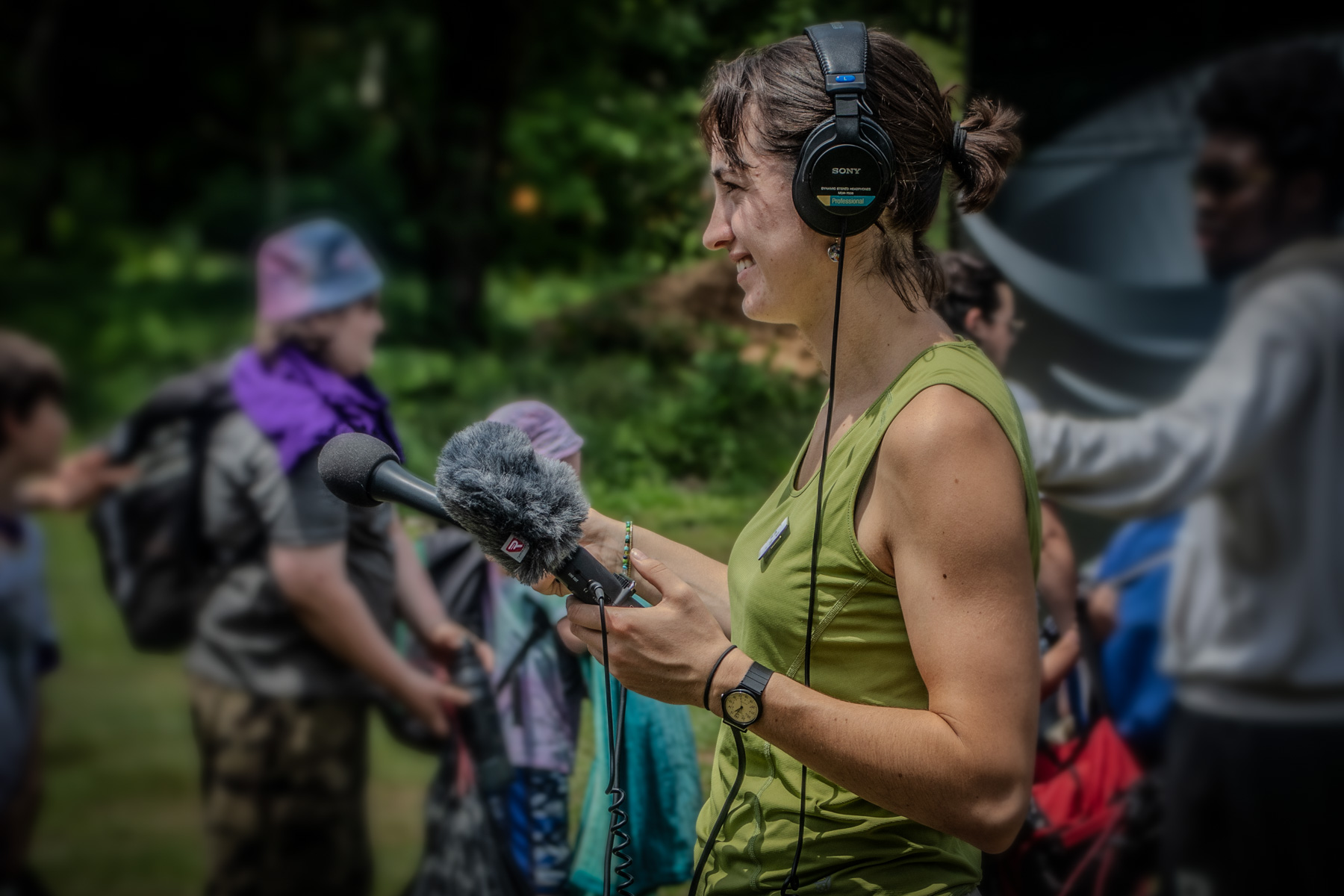
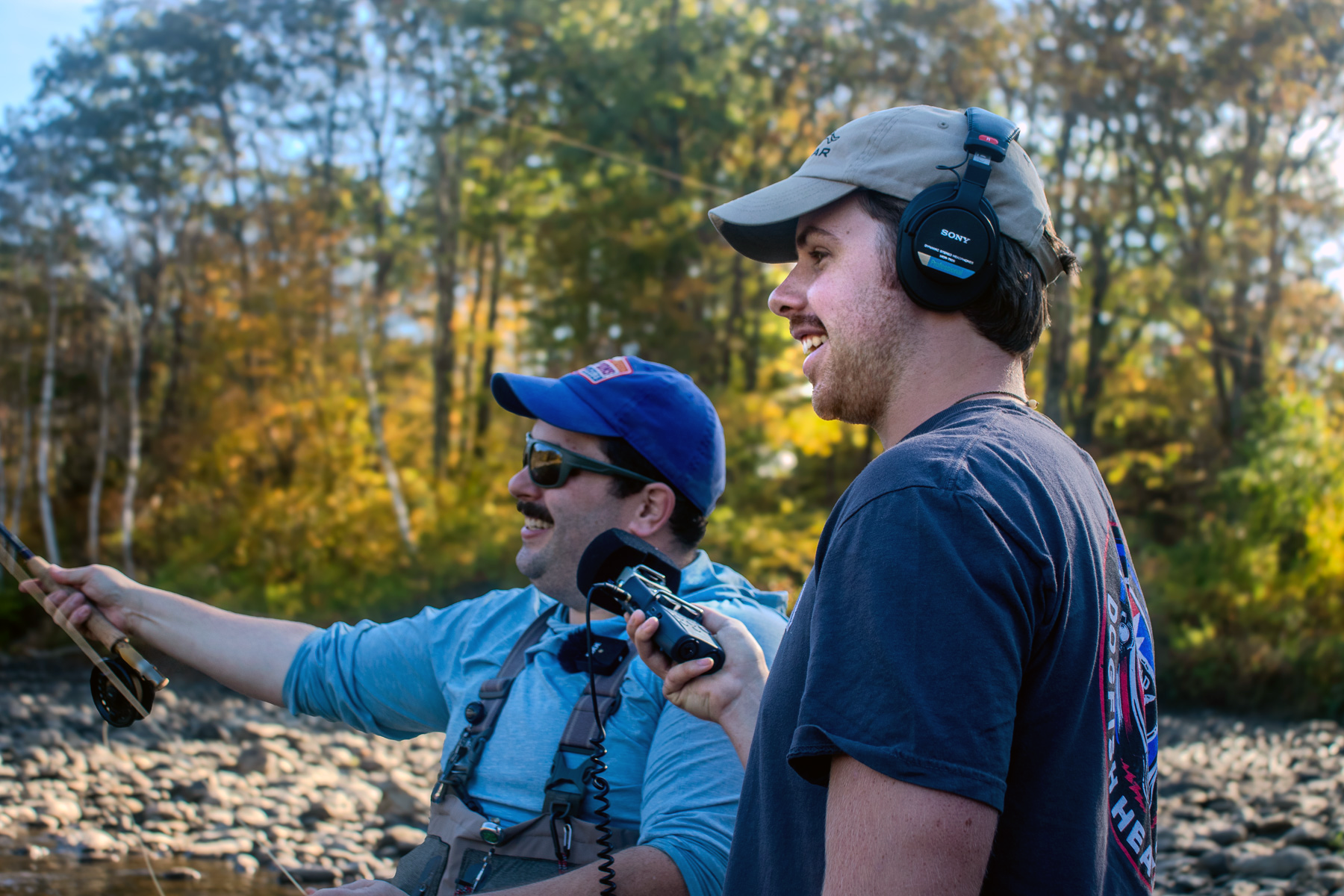
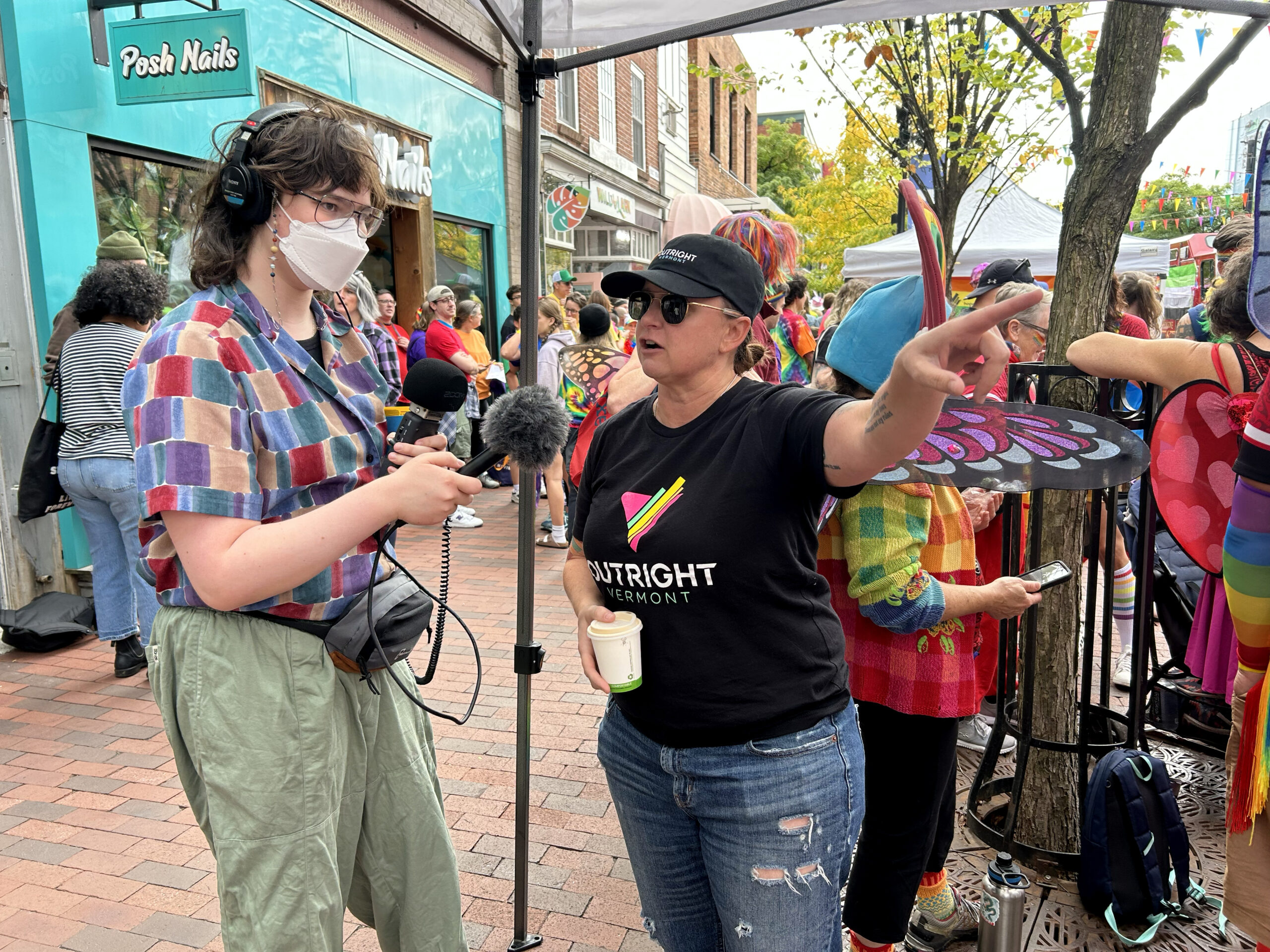
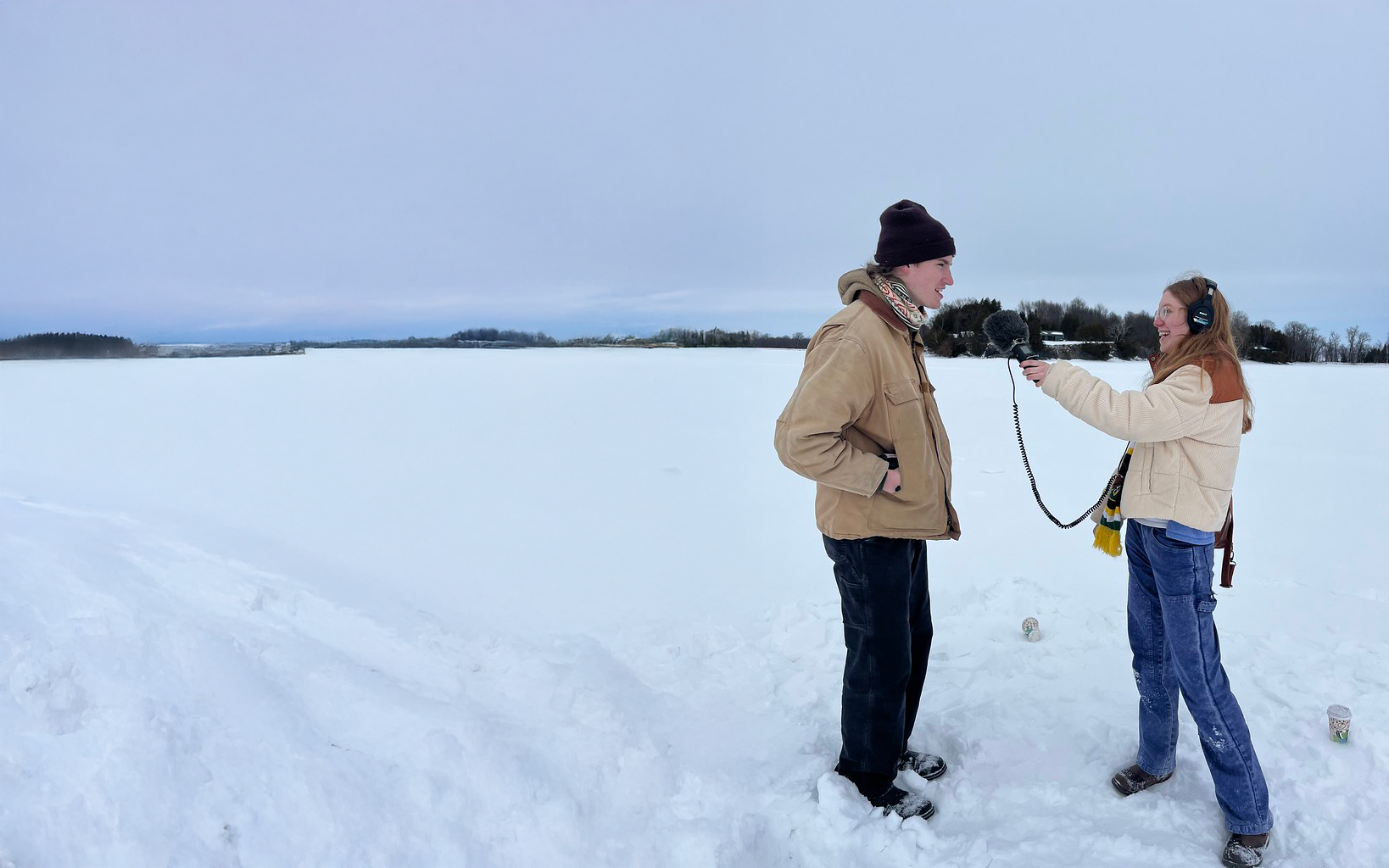
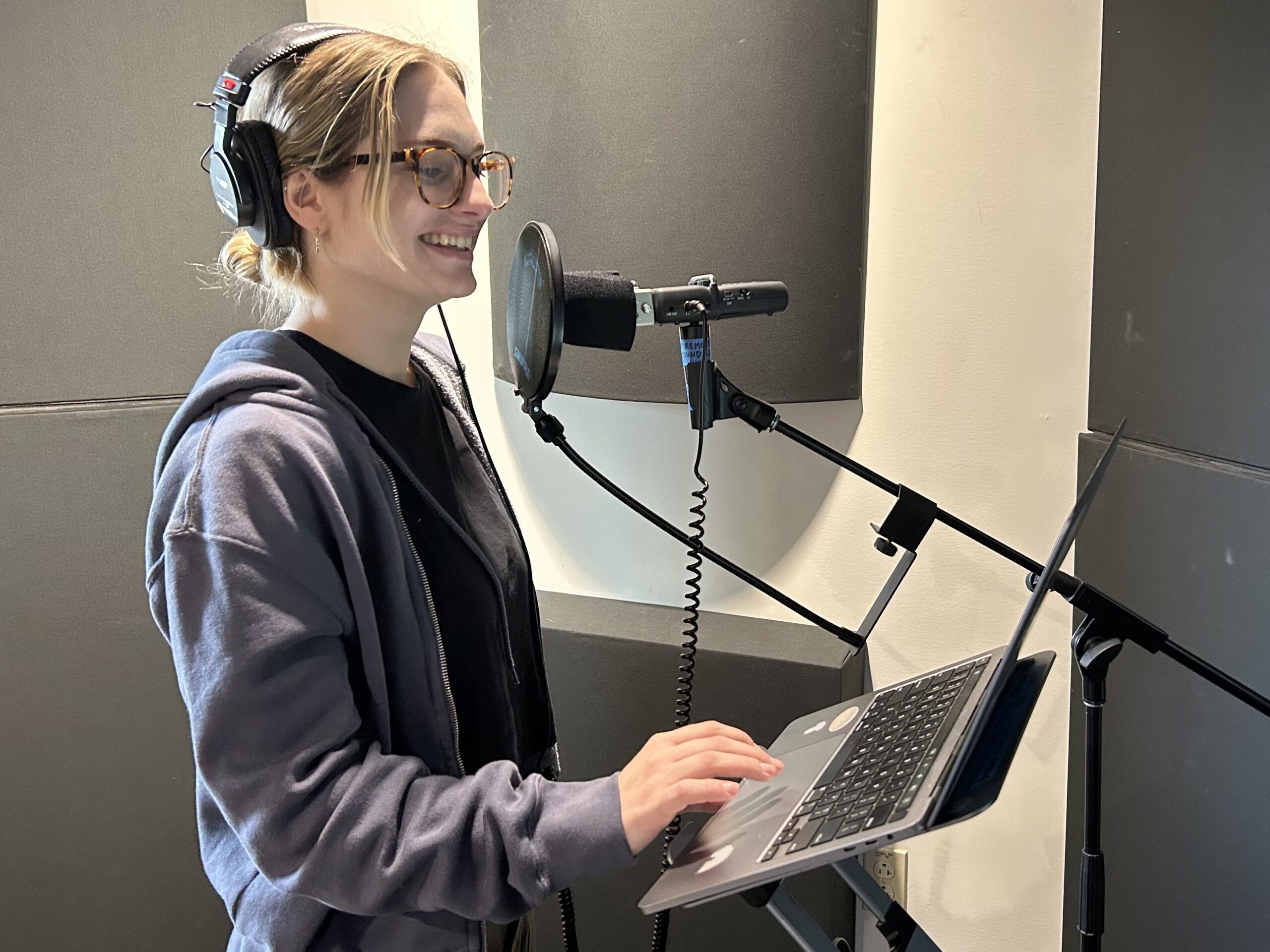
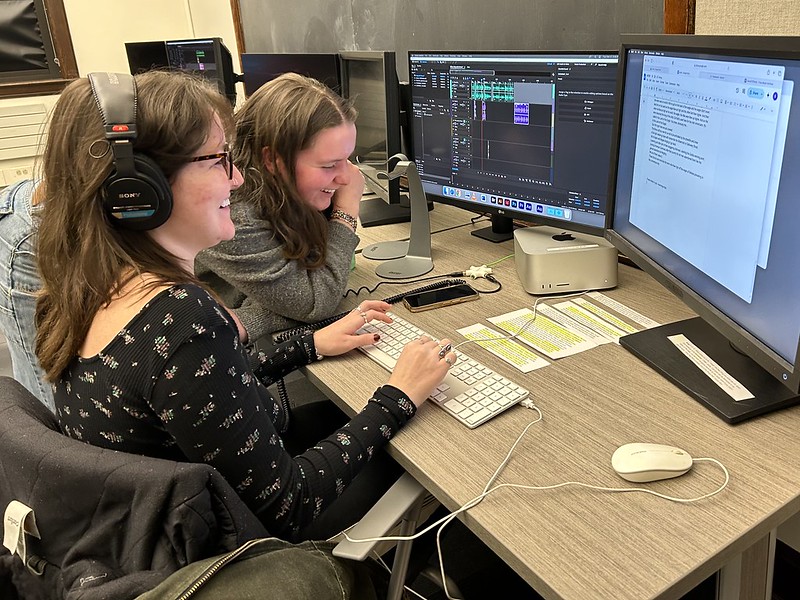
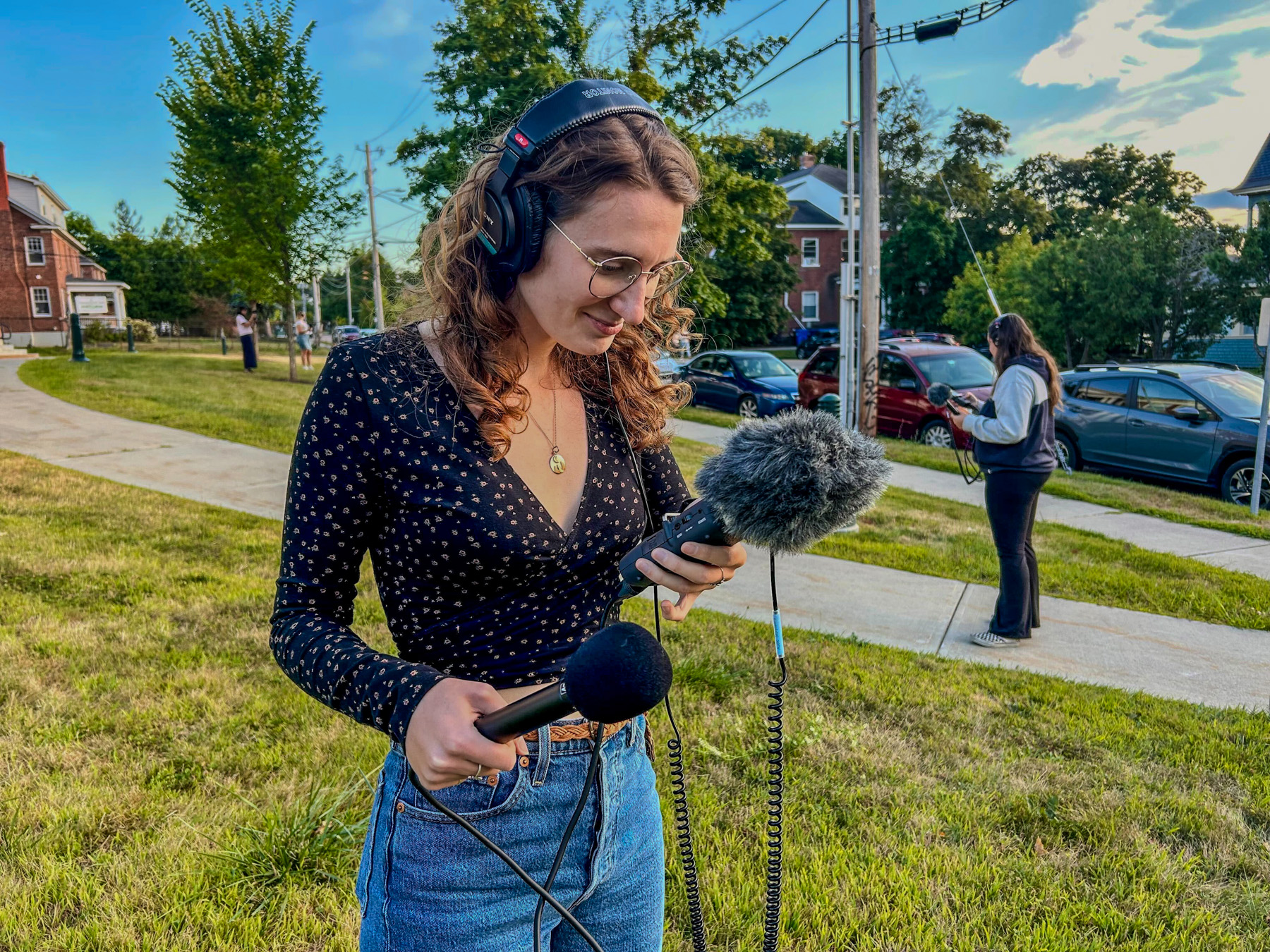
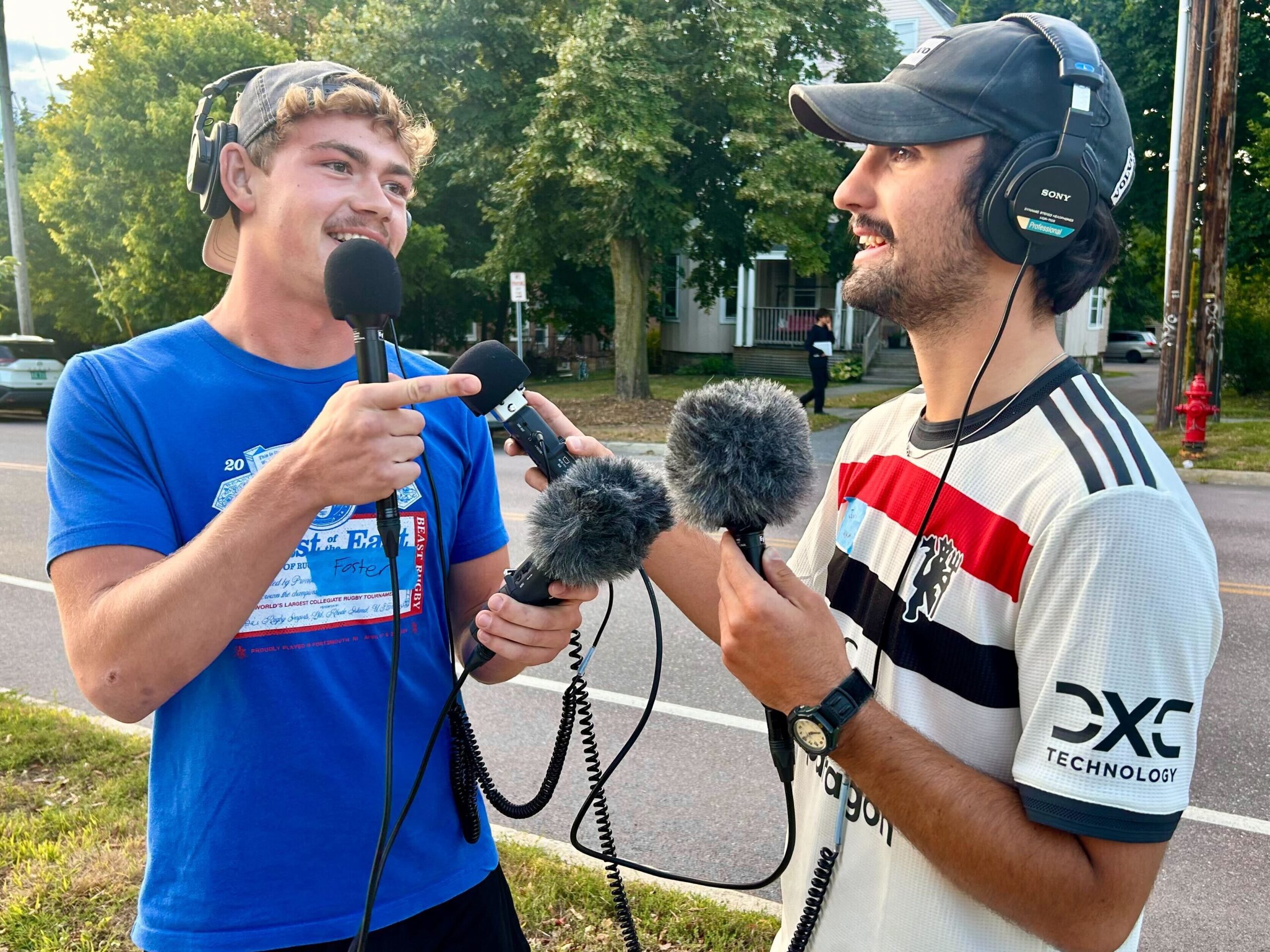
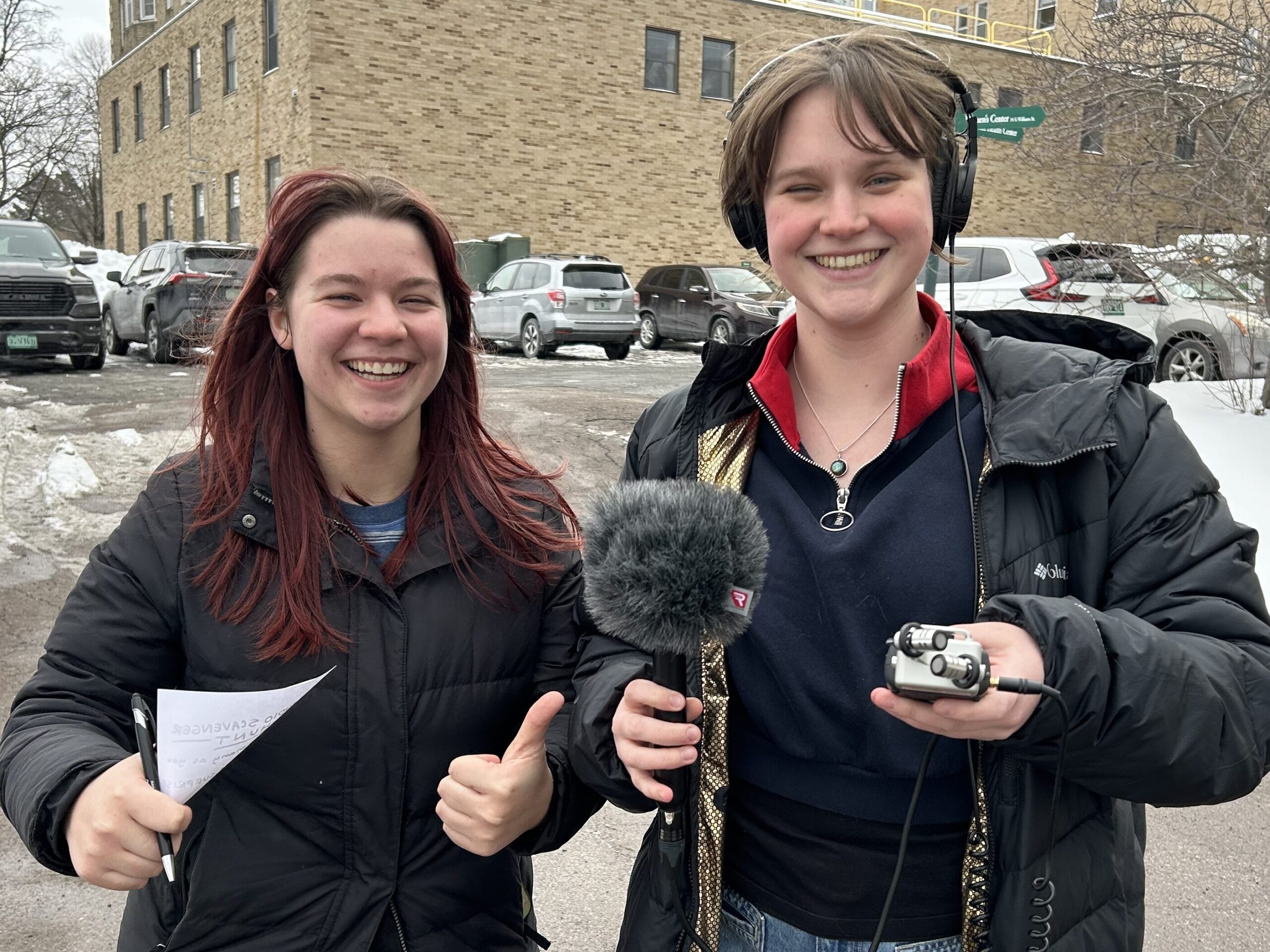
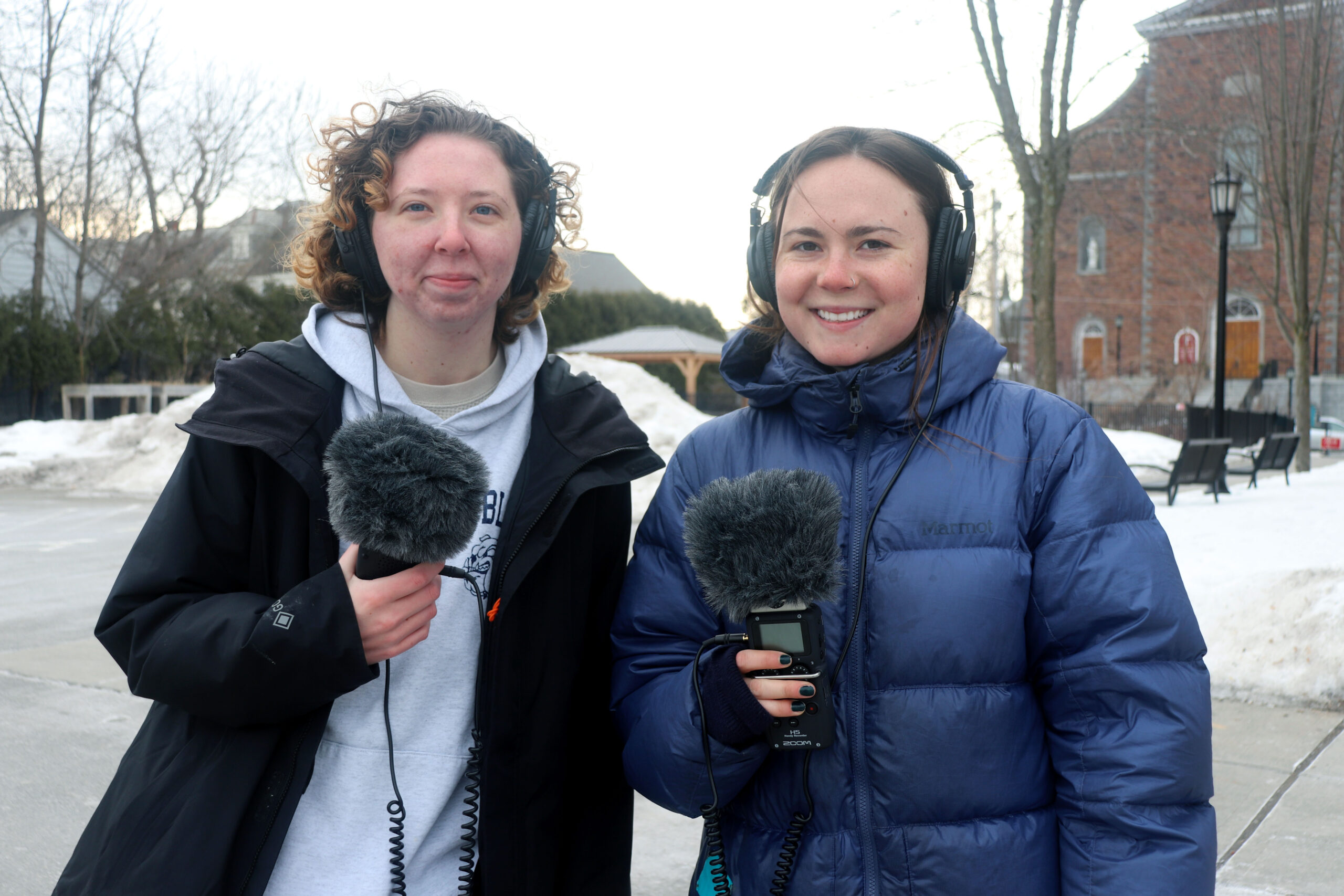
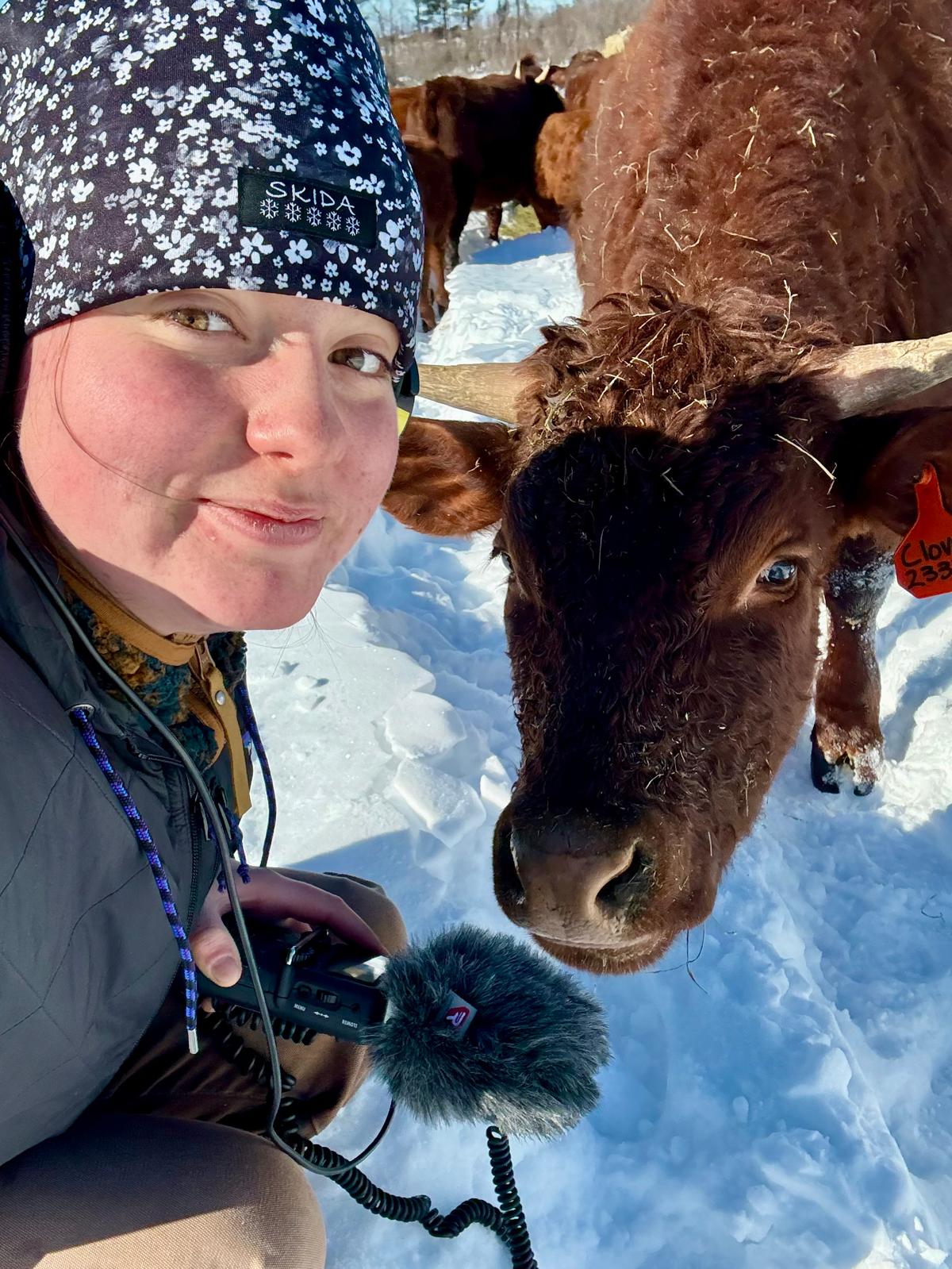
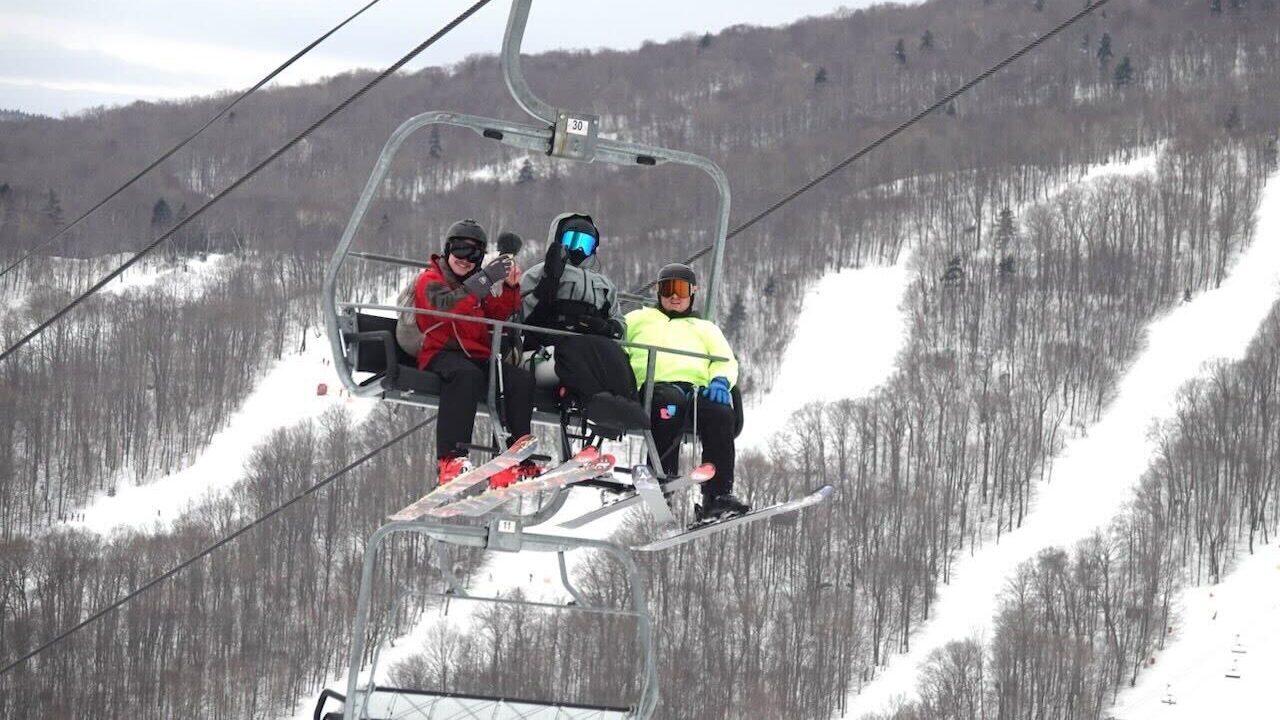
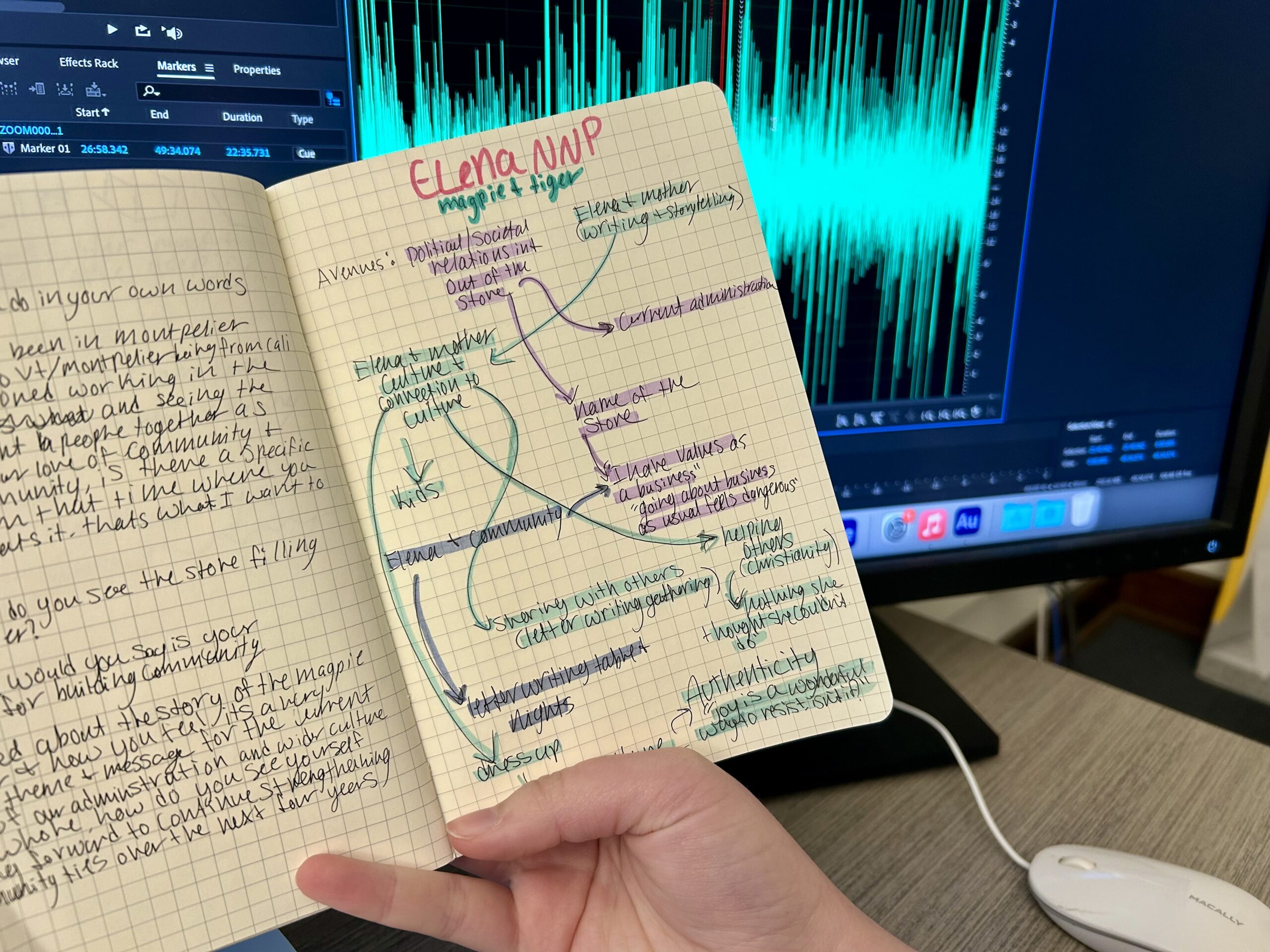
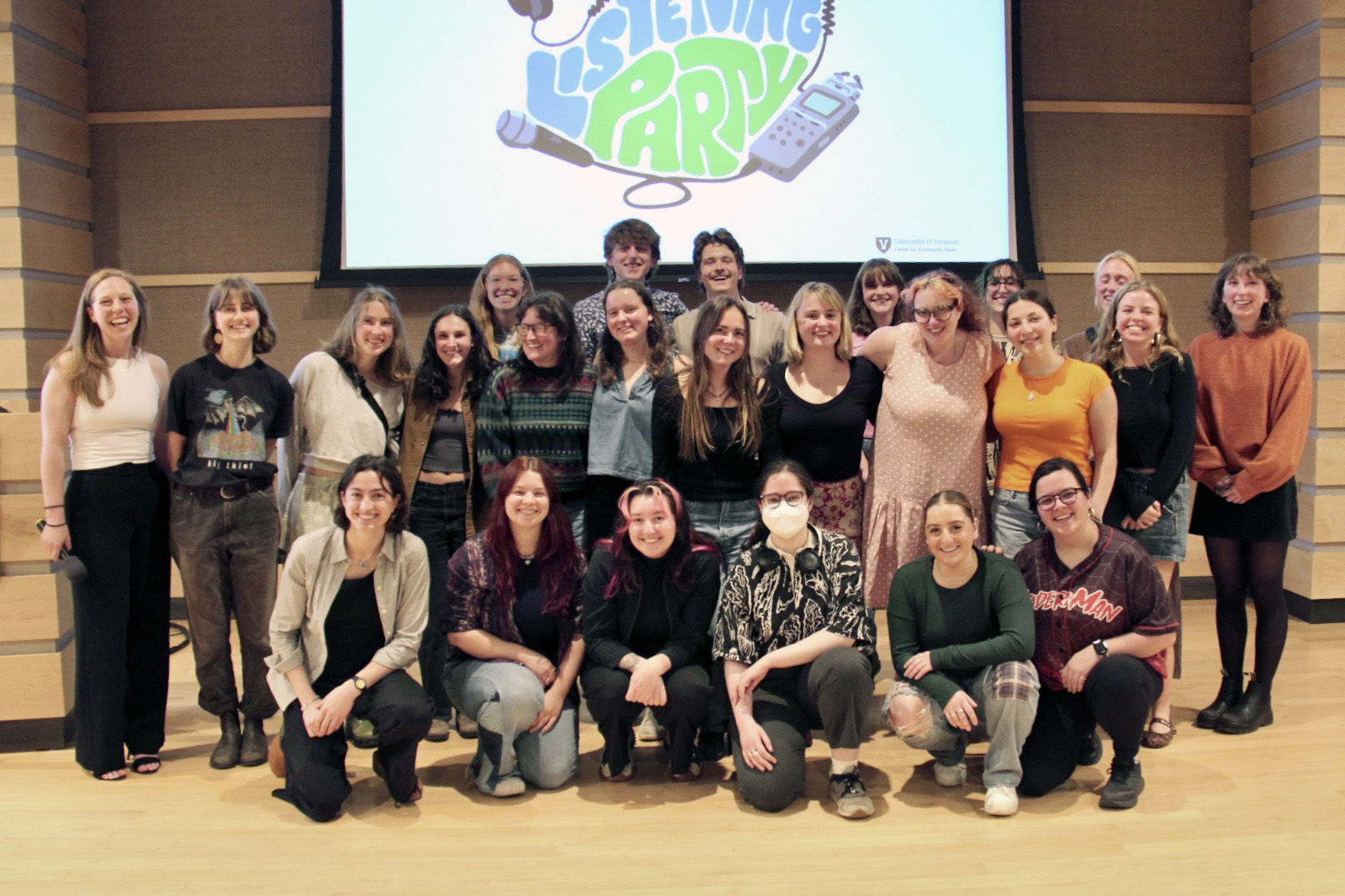
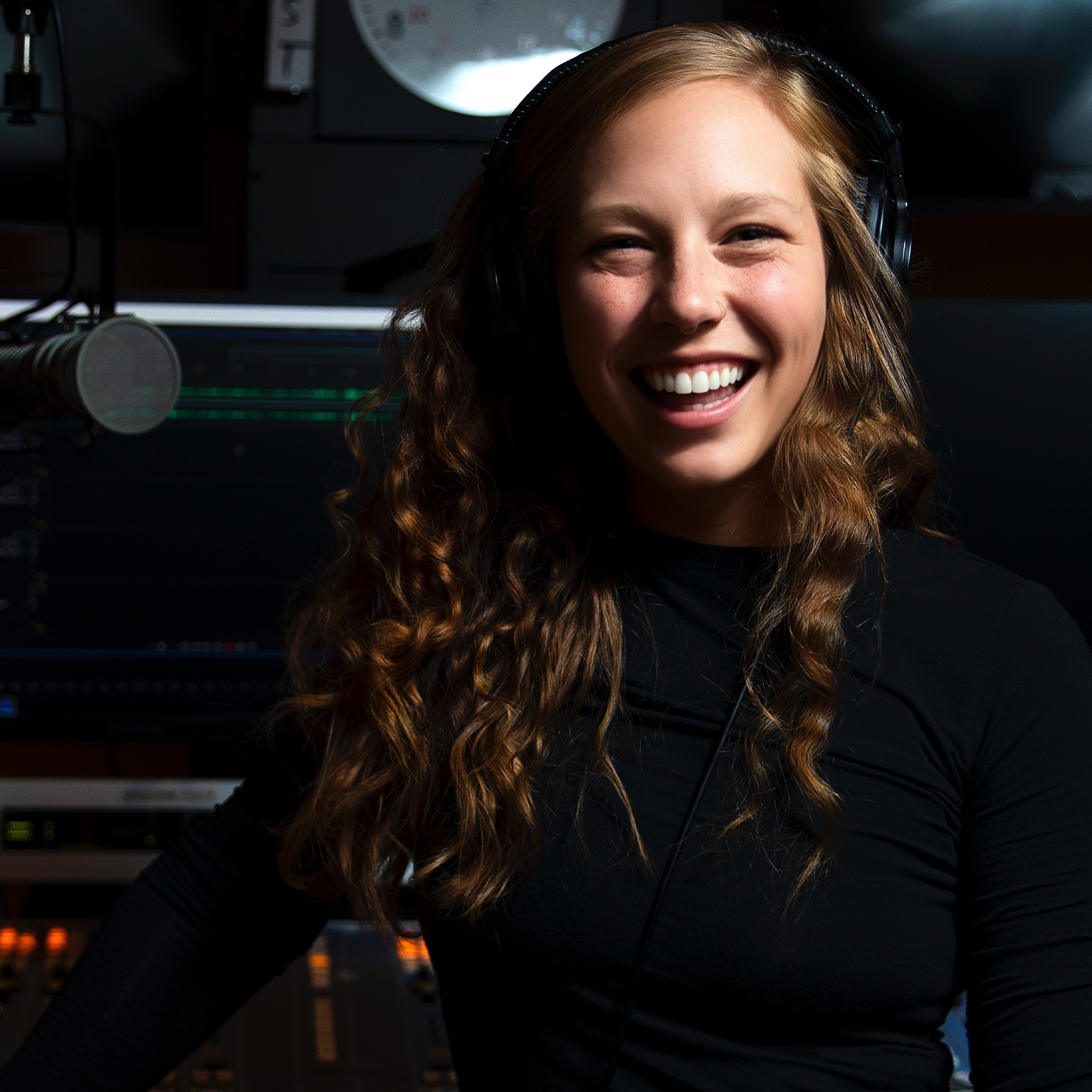
Instructor: Kelsey Tolchin-Kupferer
Lecturer in Public Media | kkupfere@uvm.edu
Kelsey (she/her) is a teacher and audio producer from Columbia, Missouri with more than a decade of experience introducing young people to public radio journalism. She teaches nonfiction audio storytelling courses at the University of Vermont and leads an internship program for UVM students at Vermont Public. Before coming to UVM, Kelsey led youth media programs at KBIA, KUOW, and the True/False Film Fest. When she’s not working, you can find Kelsey riding her bike and listening to podcasts.
[Name pronunciation: KELL-see TOAL-shin CUP-fur-er]
A UVM College of Arts & Sciences collaboration with:

Still have questions?
Email cas.discovery@uvm.edu — our team would be happy to assist.
